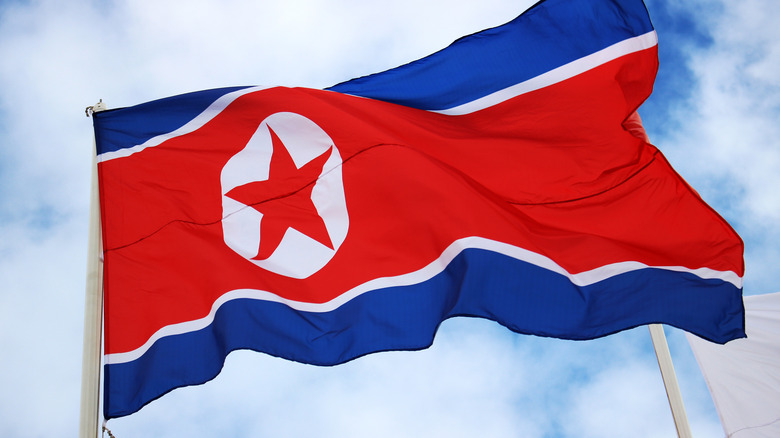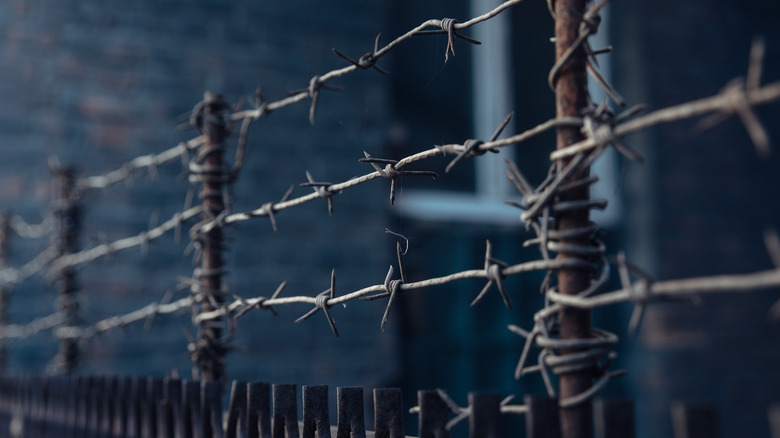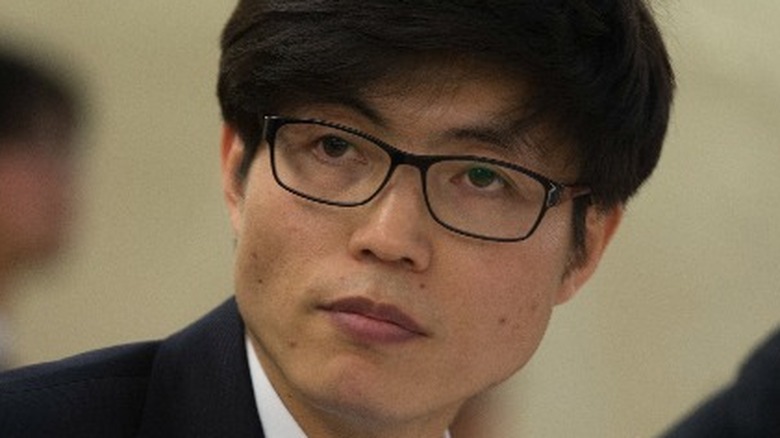How One Person Managed To Escape A North Korean Prison Camp
Much of what happens within the borders of North Korea remains a mystery, as residents are rarely permitted to leave or contact anyone living outside the country. Although the Democratic People's Republic of Korea is generally open to tourists, their movements are heavily regulated and travel is limited to specific areas. According to the U.S. Department of State, tourists are also at "serious risk of arrest and long-term detention" if found to be in violation of any of North Korea's rules or laws.
Rumors about an extensive network of prison camps operating within North Korea are difficult to substantiate, as officials vehemently deny the existence of the facilities, and outside access to the alleged sites is prohibited. However, interviews with former detainees have provided some insight into the prison camps and how they are run.
On January 2, 2005, a young man named Shin Dong-hyuk managed to escape North Korea. Although he traveled through China, he eventually made it to South Korea, where he relayed a harrowing — and ultimately controversial — story. As reported by CBS News, Shin claimed he was born and raised in a prison camp known as Camp 14. At the time, he was the only known person to have spent their entire life inside Camp 14 and made a successful escape.
Human Rights Watch says Camp 14 is known as a "total control camp," where inmates are detained indefinitely — often with their families— for committing political crimes. In most cases, detainees do not survive past the age of 45.
Shin Dong-hyuk saw his mother and brother executed for attempting to escape
In an interview with CBS, Shin Dong-hyuk said he rarely questioned the atrocities he witnessed and experienced in Camp 14 because they were all he ever knew. Unsurprisingly, he rarely considered escaping because he "thought that the society outside the camp would be similar to that inside the camp," and the punishment for attempted escape was death.
According to Shin, his parents were both prisoners in the labor camp and their marriage was arranged by the guards. Although they were married and eventually had several children, they were never a "family" in the traditional sense. Shin said he and his parents did not live together, and were rarely granted the privilege of spending time together.
While his parents were housed with separate workgroups, Shin lived in "a school of sorts" with the children of other prisoners. In his CBS interview, Shin relayed the heartbreaking story of a schoolmate who was beaten to death for "hoarding a few kernels of corn." Although Camp 14 provided the prisoners with meals, they largely consisted of a thin mixture of cornmeal and cabbage. Shin said prisoners were often forced to supplement their meals with insects and rodents.
As reported by CBS News, Shin's mother and brother were ultimately executed for attempting to escape. In addition to being forced to watch the executions, Shin was severely tortured for his perceived involvement in the plot.
Shin Dong-hyuk escaped North Korea after 23 years in prison
Shin Dong-hyuk did not contemplate escape until he met a fellow prisoner named Park, who told him about life outside Camp 14 and North Korea. As reported by CBS News, he was specifically impressed with the variety and sheer amount of food available in the world outside the prison.
With Park's assistance, Shin committed to escaping to find a better life. While gathering wood one evening, Shin and Park discovered a breach in an electric fence. However, they waited until sunset to make their move. Park was electrocuted and ultimately died when he attempted to crawl under the fence. However, Shin said he simply "crawled over his back" and made his escape.
Although he is thankful for his freedom, Shin is still carrying immense guilt for things that happened while he was incarcerated. He is specifically remorseful for exposing his mother and brother's plot to escape — which ultimately led to their executions.
As reported by The Guardian, Shin has also faced criticism from his father, who stated in a recorded video message that Shin's account of his time in North Korea was inaccurate. Following his receipt of the video, Shin admitted some of the details in his accounts were altered to "conceal and hide" specific locations or circumstances. However, he asserts the atrocities he saw and experienced in the North Korean prison camp were all real.


